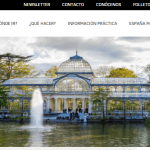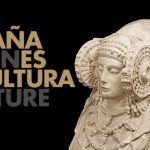The minister for Industry, Trade and Tourism, Reyes Maroto, participated in the presentation of the “Tourism innovation and intelligent specialisation in Spain: essential methods for recovery” report, produced by SEGITTUR in collaboration with the COTEC Foundation for Innovation and Infyde.
This work offers a vision of the defining elements of our tourism model before COVID-19, both overall and broken down by area, and focuses on innovation, knowledge and intelligent specialisation as bases upon which to design the roadmap towards recovery and the transition to a new tourism model that is more resilient, sustainable, digital and innovative. The report analyses the relationship between innovation and the tourism sector through the use of available statistical information from between 2003 and 2018.
To minister Reyes Maroto, “Now is the time to reflect on the competitive model of the Spanish tourism sector and its role in our economy, and to integrate new factors to make it more competitive, such as sustainability, quality, knowledge and innovation. The new Sustainable Tourism Strategy 2030 and the Plan for the Modernisation and Competitiveness of the Tourism Sector both prioritise boosting the recovery of the sector and promoting an innovative tourism model through new, intensive Smart Destination and tourist company models for knowledge, innovation and new technologies.”
The Tourism minister has proposed the creation of an Alliance for innovation and knowledge creation in tourism, a way for universities, industries, company associations and public institutions to meet and respond to the new challenges of the post-COVID era, both in science and in transforming tourism. “In line with Sustainable Development Goal number 17, we at the Ministry want to create an Alliance for Innovation in the Tourism Sector which, within the framework of a new tourism strategy, allows the efforts of the tourism and technology industries to align, promoting public-private cooperation in defining and financing innovative initiatives.
At the heart of this alliance would be the promotion of research, and especially of studies and education on public tourism policies and private tourism management models, so that Spain will be internationally recognised for its public policies, its technological tourism and its private management models,” emphasised Maroto.
One of the main conclusions drawn in the report is that the tourism sector has a long way to go to match other sectors in terms of innovation, the use of technology and the sharing of knowledge to maintain and improve upon the leading position Spain enjoys on an international level. Similarly, it signalled that Spanish regions are being faced with the opportunity to promote cooperation frameworks to develop specific actions which encourage innovation in the tourism sector, which they should take advantage of.
It highlighted that the intersectional nature of the tourism sector enables the boosting of a roadmap for tourism innovation, incorporating complementary technologies to assist with the growing needs of the market, such as ICT, the environment, design, agro-industry, infrastructure, technology designed for cultural heritage, building technologies, transport and logistics for travellers, technology designed for culinary tourism and technology relating to health tourism.
It also noted that in terms of technology, the main challenge facing Spanish tourism is that of establishing synergies and joint actions focusing on the concept of Smart Destinations, together with the work programme developed by the Secretary of State for Tourism through SEGITTUR and within the Smart Destinations Network framework of activities, the new Sustainable Tourism Strategy 2030 and the Plan for the Modernisation and Competitiveness of the Tourism Sector, as defined in the framework of the European Recovery Funds.
The document identifies a set of barriers to innovation within the sector, including access to funding, the scarcity of own funds and public subsidies, difficulties in finding partners to cooperate with on activities, the domination of the market by established companies and difficulties in bringing qualified personnel on board.
Finally, it includes the detail of value chains for each of the Spanish regions, a representation of the commercial relationships between the tourism sectors and the other sectors within regional economies.





